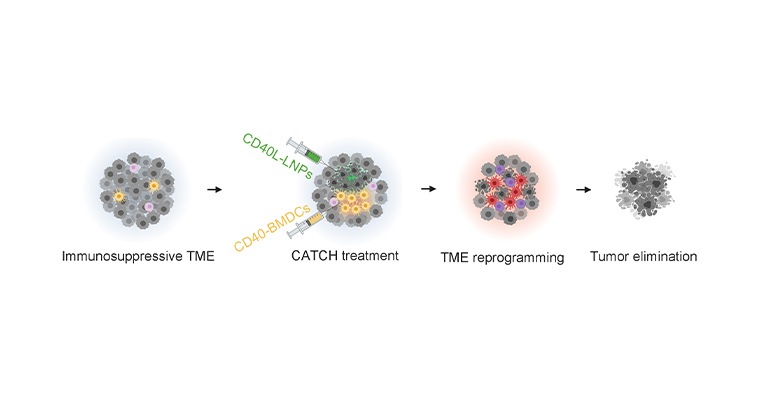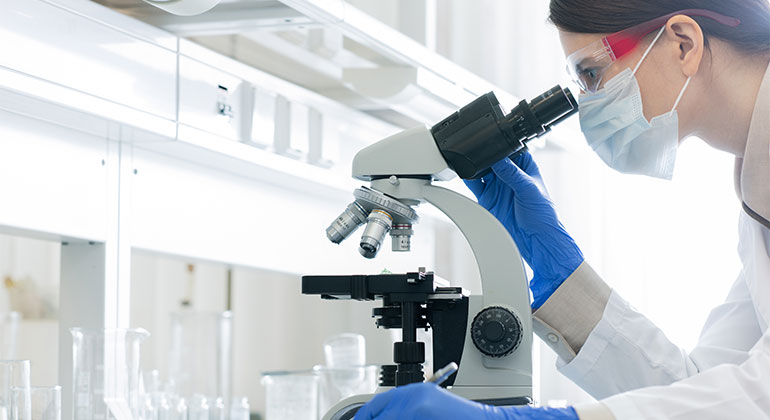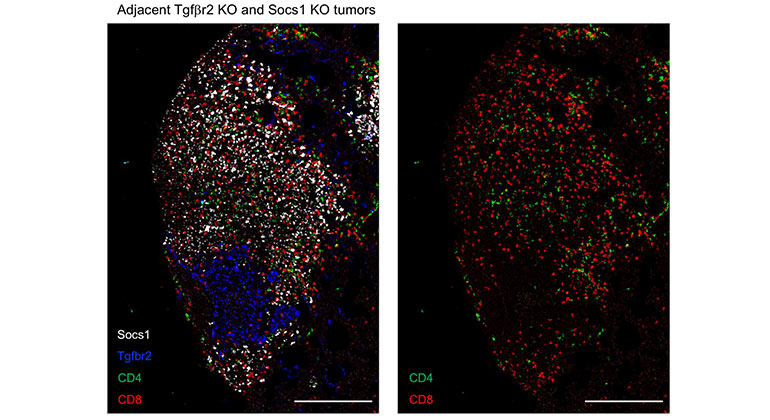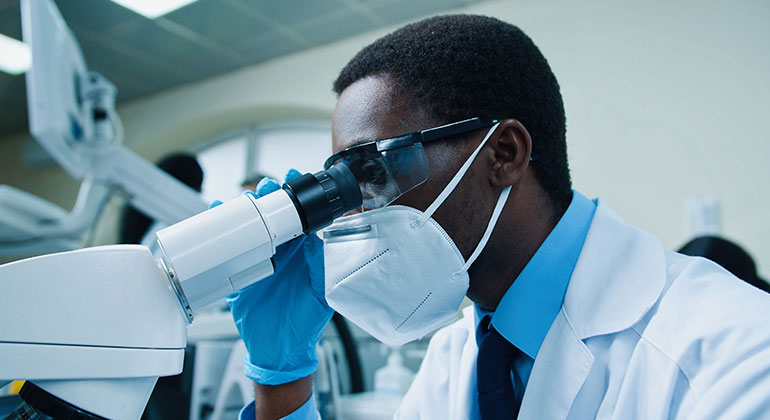Mount Sinai Researchers Identify Gene Mutations in Congenital Heart Disease
Using high-throughput sequencing, an international research team including Mount Sinai discovers causes of severe congenital heart disease
Mutations in eight genes have been linked to severe forms of congenital heart disease (CHD), according to a study involving investigators at the Icahn School of Medicine at Mount Sinai.The study used an advanced technique known as high-throughput sequencing that enables scientists to obtain the sequence of all 22,000 human genes and the entire human genome at one time. Results from the study are published online today in the journal Nature.
The research was conducted through the National Heart, Lung, and Blood Institute (NHLBI)-supported Pediatric Cardiac Genomics Consortium, an international, multi-center collaborative effort. The NHLBI is part of the National Institutes of Health (NIH).
“The eight genes that we identified are important in chromatin remodeling,” said a study coinvestigator, Bruce D. Gelb, MD, Director of The Mindich Child Health and Development Institute (MCHDI) at the Icahn School of Medicine at Mount Sinai.
Chromatin remodeling controls which genes work in which cells. For example, chromatin remodeling makes sure that only genes that control the heart are used in the heart, and genes that are used in the brain are turned on and off in the brain. When chromatin remodeling genes are altered, the on/off status of many genes is altered.
“Together, all of the gene mutations we found account for about 10 percent of the severe congenital heart disease,” said Dr. Gelb. “We may eventually be able to offer better early interventions that slow the natural history of congenital heart disease.”
Congenital heart disease affects approximately 8 in 1,000 newborns. It encompasses a wide variety of defects. Some forms of CHD can be lethal, complex to treat, and can lead to serious intellectual and developmental disabilities. Other forms of CHD require no treatment or can easily be fixed. Congenital heart disease is rarely inherited.
Mutations in genes that control chromatin remodeling have already been implicated in cancers. Some drugs that target chromatin remodeling have already been approved and many more are in the pipeline, according to Dr. Gelb.
With only 30 genes identified out of more than 400 genes believed to be important in congenital heart disease, Dr. Gelb says that researchers will next examine many more parents and their affected children.
As the genetic architecture underlying congenital heart disease becomes better understood, genetic testing will become more widely used. What is clear, thus far, is “that parents participating in these studies take comfort in learning that a congenital heart defect or another problem results from a cause that no one had any control over,” said Dr. Gelb. “That is, it wasn’t their fault or the fault of the medical care that they received.”
For the study, researchers used exome sequencing of 362 parent-child trios: parents with no identifiable heart disease and a child with severe congenital heart disease. The major types of severe congenital heart disease among the children included conotruncal defects (abnormal heart outflow formation), left ventricular obstruction (impaired blood flow from the heart’s main pumping chamber), and heterotaxy (abnormal formation of the left-right sides of the body). The children also had other impairments related to the heart problems, especially neurodevelopmental delays and poor growth.
About The Mount Sinai Medical Center
The Mount Sinai Medical Center encompasses both The Mount Sinai Hospital and Icahn School of Medicine at Mount Sinai. Established in 1968, the Icahn School of Medicine at Mount Sinai is one of the leading medical schools in the United States. The Icahn School of Medicine is noted for innovation in education, biomedical research, clinical care delivery, and local and global community service. It has more than 3,400 faculty members in 32 departments and 14 research institutes, and ranks among the top 20 medical schools both in National Institutes of Health (NIH) funding and by U.S. News & World Report.
The Mount Sinai Hospital, founded in 1852, is a 1,171-bed tertiary- and quaternary-care teaching facility and one of the nation’s oldest, largest and most-respected voluntary hospitals. In 2012, U.S. News & World Report ranked The Mount Sinai Hospital 14th on its elite Honor Roll of the nation’s top hospitals based on reputation, safety, and other patient-care factors. Mount Sinai is one of just 12 integrated academic medical centers whose medical school ranks among the top 20 in NIH funding and by U.S. News & World Report and whose hospital is on the U.S. News & World Report Honor Roll. Nearly 60,000 people were treated at Mount Sinai as inpatients last year, and approximately 560,000 outpatient visits took place.
For more information, visit http://www.mountsinai.org.
Find Mount Sinai on:
Facebook: http://www.facebook.com/mountsinainyc
Twitter @mountsinainyc
YouTube: http://www.youtube.com/mountsinainy
About the Mount Sinai Health System
Mount Sinai Health System is one of the largest academic medical systems in the New York metro area, with more than 43,000 employees working across eight hospitals, over 400 outpatient practices, nearly 300 labs, a school of nursing, and a leading school of medicine and graduate education. Mount Sinai advances health for all people, everywhere, by taking on the most complex health care challenges of our time — discovering and applying new scientific learning and knowledge; developing safer, more effective treatments; educating the next generation of medical leaders and innovators; and supporting local communities by delivering high-quality care to all who need it.
Through the integration of its hospitals, labs, and schools, Mount Sinai offers comprehensive health care solutions from birth through geriatrics, leveraging innovative approaches such as artificial intelligence and informatics while keeping patients’ medical and emotional needs at the center of all treatment. The Health System includes approximately 7,300 primary and specialty care physicians; 13 joint-venture outpatient surgery centers throughout the five boroughs of New York City, Westchester, Long Island, and Florida; and more than 30 affiliated community health centers. We are consistently ranked by U.S. News & World Report's Best Hospitals, receiving high "Honor Roll" status, and are highly ranked: No. 1 in Geriatrics and top 20 in Cardiology/Heart Surgery, Diabetes/Endocrinology, Gastroenterology/GI Surgery, Neurology/Neurosurgery, Orthopedics, Pulmonology/Lung Surgery, Rehabilitation, and Urology. New York Eye and Ear Infirmary of Mount Sinai is ranked No. 12 in Ophthalmology. U.S. News & World Report’s “Best Children’s Hospitals” ranks Mount Sinai Kravis Children's Hospital among the country’s best in several pediatric specialties.
For more information, visit https://www.mountsinai.org or find Mount Sinai on Facebook, Twitter and YouTube.

New RNA-based Therapy Combats Melanoma in Mouse Models
Jul 27, 2023 View All Press Releases
Targeting One Type of Immune Cell With Another Slows Cancer Growth in Preclinical Studies
Oct 25, 2022 View All Press Releases
Researchers Identify Potential Target for Treatment Among Patients With Type 2 Diabetes
Aug 04, 2022 View All Press Releases
Mount Sinai Appoints Bruce D. Gelb, MD, as Dean for Child Health Research
May 17, 2022 View All Press Releases
Novel CRISPR Imaging Technology Reveals Genes Controlling Tumor Immunity
Mar 15, 2022 View All Press ReleasesMount Sinai Researchers Discover Treatment Option for Rare Genetic Disorder
Aug 04, 2020 View All Press Releases

